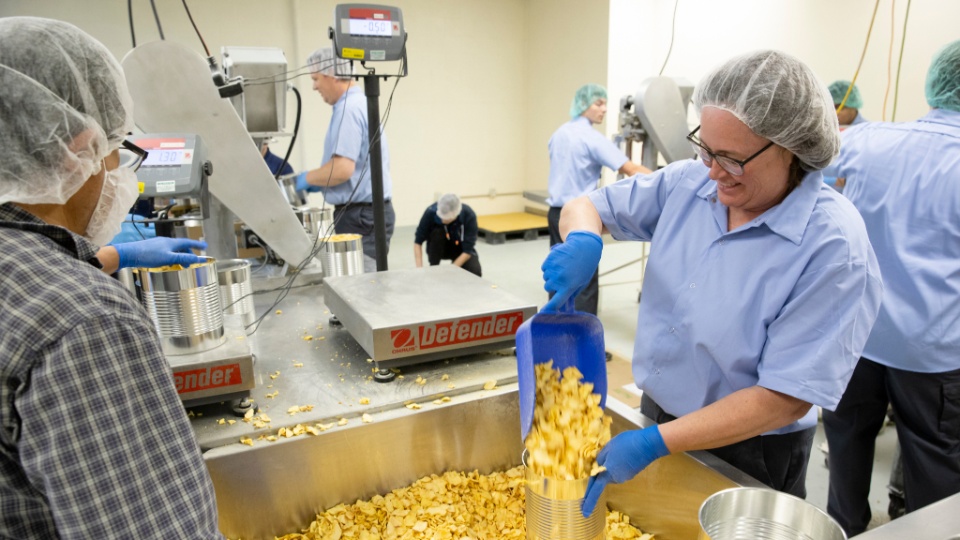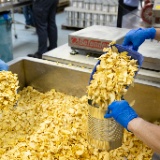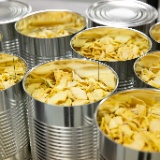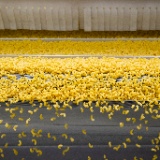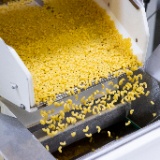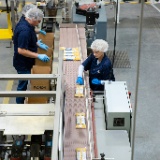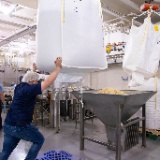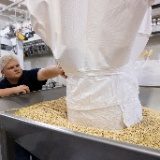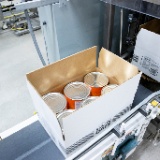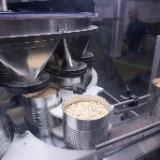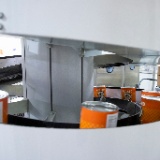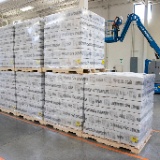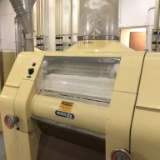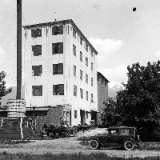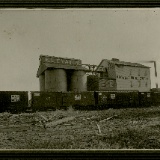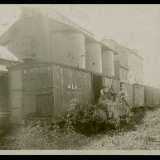The Deseret Mill and Pasta facility in Northern Utah is increasing its production of more than 30 products to help families increase their food storage during times of emergency and to benefit those in need.
| Temple Square is always beautiful in the springtime. Gardeners work to prepare the ground for General Conference. 2012 Intellectual Reserve, Inc. All rights reserved. | 1 / 22 |
The Kaysville plant, owned and operated by The Church of Jesus Christ of Latter-day Saints, was purchased by the Church in the 1940s as part of the Church’s Welfare program. The facility was expanded in 2015 with the addition of the pasta plant.
“We want people to have storage in times of crisis or in times of need,” said Gordon Carmen, director of production and distribution for the Church’s Welfare and Self-Reliance Services Department.
“Customers can purchase various products, like wheat, rice and beans, that are packed in number 10 cans, primarily,” Carmen said. “These usually have a shelf life of 20 to 30 years. Some of our dried milk products last 12 years.”
Church leaders have taught that home food storage should consist of both short- and long-term goods. Short-term items, such as pasta, pancake flour and cake mixes, should be balanced with longer-term goods, such as raw wheat, rice, oats and beans, depending on a family’s needs.
Carmen stated, “We’re now producing enough for our own needs, but we’re also producing enough to be able to give away to food banks and other humanitarian partners that we collaborate with.”
Donations Increase
Beginning in 2018, food donations to community charities increased by more than 20 million pounds annually when Church leaders focused on producing more finished goods, such as pasta and flour.
This inspired focus on increased finished goods allowed greater opportunities to share. Last year, the Church donated 32 million pounds of pasta, flour and other goods to food banks across the country to help feed those in need during the COVID-19 pandemic.
“For 2020, our plan at Deseret Mill and Pasta was to produce 480,000 cases of food, but we ended up making 922,000 cases,” said Roberto Gaertner, Deseret Mill and Pasta plant manager.
Additional staff, volunteers and shifts were added to accommodate the growing need.
Plans call for expanding the donations of beans, cake and pancake mixes, flour, oats, rice and pasta again in 2022. The pastas include macaroni, macaroni and cheese, ribbon pasta and spaghetti.
Distribution
A dozen items, such as oats, macaroni and other goods, are distributed in the Church’s bishops’ storehouses in the US and Canada. In addition, 20 products, including dried fruit, are available through the Church’s online store and Home Storage Centers.
Trucks from the Church’s Deseret Transportation pick up the finished products at the Deseret Mill and Pasta facility and take them to the Bishops’ Central Storehouse in Salt Lake City for distribution in North America.
“The international [bishops’] storehouses don’t receive any of this product. They buy that locally to help the local economy grow and to save on our shipping costs,” Carmen explained.
“We call it the best food that money can’t buy,” he said. Those in need must have a bishop’s approval to pick up food orders at one of the 110 bishops’ storehouses in the US and Canada.
Church employees, on-call workers, missionaries and volunteers from local congregations staff the mill during the week.
“That’s kind of fun to see what you’ve done actually go somewhere that makes a difference for someone that really needs it,” said Elder Edward Flink of Kaysville, who serves as a senior missionary at the facility with his wife.
“I like fast-paced work, so this helps me to just feel like I’m doing something, making a difference, doing my part,” added Elder Caleb Rigby, 19, a service missionary.
Farm to Table
Wheat and other food processed at the nearly 86,000-square-foot facility come from Church farms and vendors in the US. The wheat is grown and harvested on Church-owned property in Idaho and Montana, and is stored in silos at the mill, located north of Salt Lake City.
“It really is farm to table,” said Carmen, who also explained that the silos can hold up to 16 million pounds of wheat, and 200,000 pounds of grain can be processed at the plant in a single day.
“I think everyone who works in this work of providing for those in need really feels that they have a mission and they’re doing what the Lord would have them do, and it’s blessing lives,” Carmen said.

